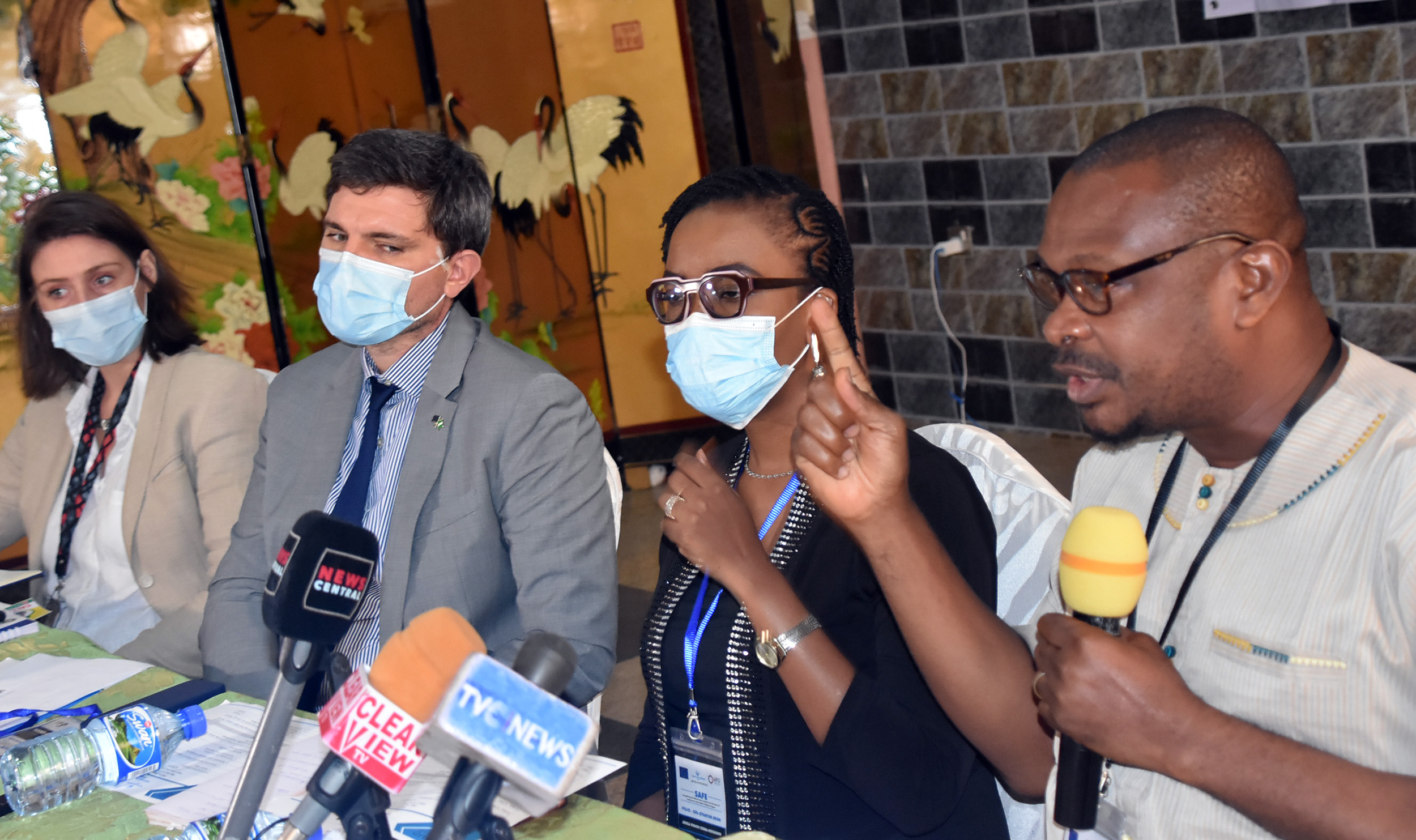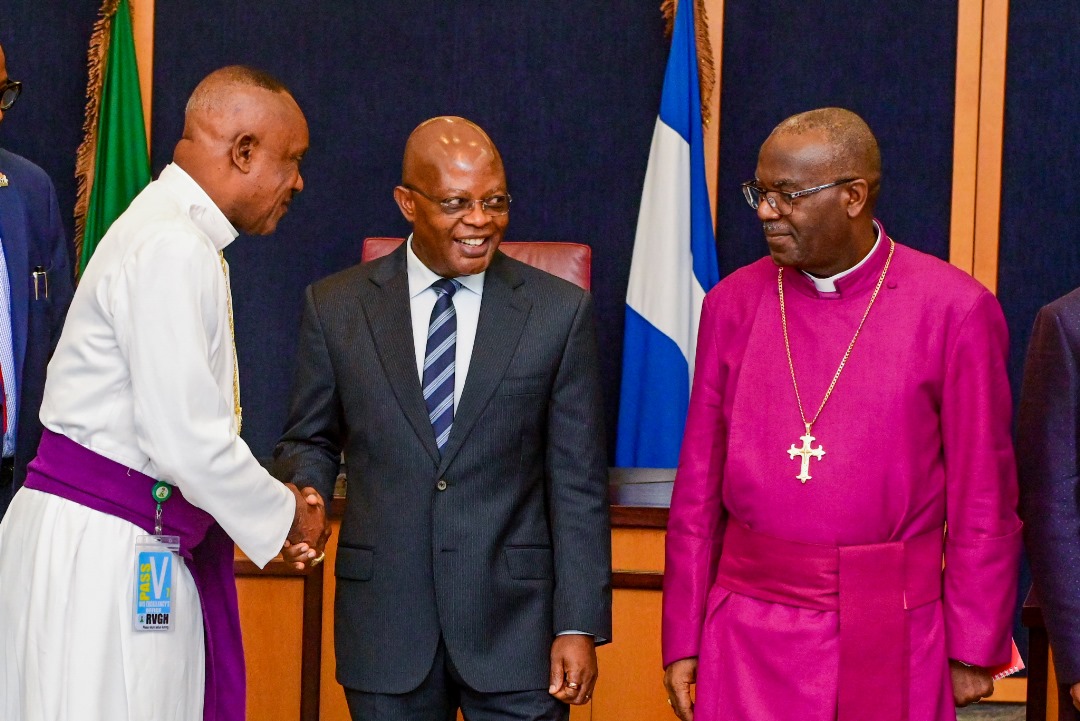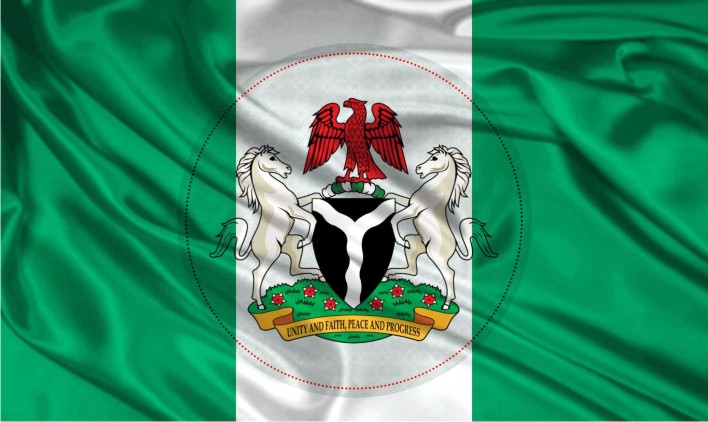Featured
SERAP, Ogonis Take FG To ECOWAS Court Over Illegal Pipelines, Oil Theft

The Socio-Economic Rights and Accountability Project (SERAP) has filed a lawsuit against the government of President Muhammadu Buhari over “the failure to probe the operations of illegal oil pipelines between 2001 and 2022, to name and prosecute those suspected to be involved, and to recover proceeds of crime.”
The suit was filed by SERAP, Chief Eric Dooh (who is suing for himself as a leader of the Goi Community in Gokana Local Government Area of Rivers State, and on behalf of the Goi Community), and 15 other concerned Nigerians.
The suit followed recent reports of the discovery of, at least, 58 illegal oil pipelines used to steal the country’s oil wealth.
The stealing is reportedly carried out through the illicit pipeline connected to the trunk line via an abandoned pipeline, and linked to a location in the high sea, where they load crude oil into vessels and sell overseas.
In the Suit No ECW/CCJ/APP/53/22 filed, last Friday, before the ECOWAS Court of Justice in Abuja, the Plaintiffs are seeking: “an order directing and compelling the Buhari government to immediately probe the reports of operations of illegal pipelines and oil theft, name and prosecute suspected perpetrators.
The Plaintiffs are also seeking: “an order directing and compelling the Buhari government to fully recover any proceeds of crime, and to respect, protect, and fulfil the human rights of the people of Niger Delta that have continued to suffer the effects of oil theft by non-state actors.”
In the suit, the Plaintiffs are arguing that, “The Buhari government is failing to uphold its international legal obligations to ensure that the country’s oil wealth is used solely for the benefit of Nigerians, and that the wealth does not end up in private pockets.”
The Plaintiffs are also arguing that, “Poor and socio-economically vulnerable Nigerians have continued to pay the price for the stealing of the country’s oil wealth apparently by both state and non-state actors.”
According to the Plaintiffs, “Despite the country’s substantial oil wealth, successive governments have largely squandered the opportunity to use the wealth to improve the lives and well-being of ordinary Nigerians.”
The Plaintiffs are also arguing that, “the illegal pipelines have been operated for many years without notice, implying a flagrant violation of international human rights obligations to ensure the proper, effective and efficient management of the country’s wealth and natural resources.”
In the suit filed on their behalf by their lawyer, Kolawole Oluwadare, the Plaintiffs contend that, “The plundering of the country’s oil wealth has resulted in the downward trend in revenue and increasing level of borrowing, with reports of a projected N11.30trillion deficit budget for 2023.”
The suit, read in part: “The unaddressed plundering of the country’s oil wealth has for many years contributed to shrinking revenue, chronic underfunding of public goods and services such as education, health, and safe drinking water, recurring budget deficits, growing level of borrowing, and unsustainable debt profile.
“There are violations of the economic and social rights of the people of the Niger Delta, including the rights to an adequate standard of living, and to economic and social development – as a consequence of the plundering of the country’s resources through the operations of illegal pipelines by non-state actors.
“The Buhari government has failed to exercise due diligence to prevent and combat oil theft; to investigate and prosecute suspected perpetrators, and recover proceeds of crimes; and to respect, protect, promote and fulfil people’s rights.
“The Plaintiffs contend that the resulting loss from the plundering of the country’s wealth and natural resources by non-state actors and state actors through the operations of illegal pipelines is a contributory cause of poverty and underdevelopment in the Niger Delta.
“The Plaintiffs further contend that the majority of the people of Niger Delta and Nigeria as a whole continue to be denied access to basic necessities of life such as clean water, quality education, healthcare, food, a clean and healthy environment, and economic development.
“This illegal oil connection has been operating for nine years with about 600,000 barrels per day of oil lost in the same period.
“According to a Nigeria Extractive Industries Transparency Initiative (NEITI) audit report, 160million barrels of crude oil valued at $13.7billion were stolen between 2009 and 2012.
“The Plaintiffs contend that the destruction of vessels used for crude oil theft by security agencies under the command of the Defendant was illegal and was done to conceal the identity of the perpetrators.
“It is further contended that the forfeiture of any vessel used for illegal activity can only be lawfully carried out pursuant to the order of a Court of competent jurisdiction.
“The Plaintiffs are, therefore, asking the ECOWAS Court for the following reliefs: A declaration that everyone in the Niger Delta is entitled to the internationally recognised human right to an adequate standard of living, to life and human dignity, to a clean and healthy environment; to wealth and natural resources, to human dignity, and to economic and social development.
“A declaration that the failure and/or negligence of the Defendant to prevent and combat oil theft through the operations of illegal pipelines by non-state actors, and to investigate, arrest, name and prosecute the perpetrators of this oil theft and operation of illegal refineries, and recover the proceeds of crime, is unlawful, as it violates Nigeria’s international human rights and anti-corruption obligations and commitments.
“A declaration that the failure and/or negligence of the Defendant to investigate the reports of operations of illegal pipelines and to recover the proceeds of crime is unlawful, as it amounts to depriving the Nigerian people of their right to the enjoyment of their wealth.
“A declaration that the failure of the Defendant to provide access to justice and effective remedies including reparation for the victims, is unlawful as it amounts to breaches of obligations to ensure the human rights guaranteed under the African Charter on Human and Peoples’ Rights and the International Covenant on Economic, Social and Cultural Rights.
“An Order directing the Defendant and/or its agents individually and/or collectively to respect, protect, promote, and fulfil the human rights of the people of Niger Delta that have continued to suffer the effects of oil theft and plundering by non-state actors.
“An Order directing the Defendant to pay adequate monetary compensation of $500million to the victims of these crimes and human rights violations within the Niger Delta region, and any other forms of reparation that the Honourable Court may deem fit to grant.
“Such further orders the Honourable Court may deem fit to make in the circumstances of this suit.”
No date has been fixed for the hearing of the suit.
Featured
FG To Seize Retirees’ Property Over Unpaid Housing Loans

The Federal Government Staff Housing Loans Board says it has begun the compilation of list of retired civil servants who have defaulted on the full repayment of housing loans obtained.
Head of Information and Public Relations, FGSHLB, Mrs Ngozi Obiechina, disclosed this in a statement in Abuja, yesterday.
Obiechina quoted the Executive Secretary of the Board, Mrs Salamatu Ahmed, as saying that the move was aimed at recovering mortgaged properties from retirees who failed to meet their loan obligations.
Ahmed noted that the decision followed a recent memo issued by Mrs Patience Oyekunle, Permanent Secretary, Career Management Office, Office of the Head of the Civil Service of the Federation.
According to her, the memo reminded public servants of the mandatory requirement to obtain a Certificate of Non-Indebtedness to the FGSHLB and MDA Staff Multipurpose Cooperative Society as a precondition for retirement.
The Executive Secretary said that the board would take necessary legal steps to repossess properties where applicable, in line with the terms of the loan agreements.
She said this was in line with the provisions of the Public Service Rules 021002 (p), issued by the Office of the Head of the Civil Service of the Federation.
“I am directed to bring to your attention the provision of Public Service Rule (PSR) 021002 (p), which mandates all public servants to obtain a Certificate of Non-Indebtedness as a prerequisite for retirement.
“The Federal Government will commence the seizure of mortgaged properties belonging to retiring federal public servants who have failed to fully repay housing loans obtained from the board,” she said.
Ahmed explained that the FGSHLB reserves the legal right to repossess any mortgaged property in cases where a public servant exits service without fully repaying the loan.
She reiterated that the directive also applied to already retired officers who were still indebted.
She urged all affected public servants to regularise their loan status and obtain the required clearance certificate without delay.
“The board is currently compiling a list of such retirees, which will be forwarded to relevant regulatory agencies for debt recovery.
“The FGSHLB remains committed to enforcing compliance and ensuring proper loan recovery procedures are followed, “ she added.
Featured
FG Begins Induction For New Permanent Secretaries, Accountant-General

The Federal Government has kicked off a three-day induction programme for newly appointed Permanent Secretaries and the Accountant-General of the Federation, aimed at equipping them for strategic leadership and effective policy implementation.
The induction, according to a statement yesterday by the Director, Information and Public Relations, Federal Ministry of Information and National Orientation, Eno Olotu, which commenced on Wednesday, is being held at the National Counter Terrorism Centre in Abuja.
Speaking at the opening session, the Head of the Civil Service of the Federation, Mrs. Didi Esther Walson-Jack, congratulated the new appointees and described their roles as pivotal to governance and national development.
“Permanent Secretaries are the engine room of the government. They are critical to driving policy implementation, institutional performance, and reform across the service”, she said.
The Federal Government has kicked off a three-day induction programme for newly appointed Permanent Secretaries and the Accountant-General of the Federation, aimed at equipping them for strategic leadership and effective policy implementation.
The induction, according to a statement yesterday by the Director, Information and Public Relations, Federal Ministry of Information and National Orientation, Eno Olotu, which commenced on Wednesday, is being held at the National Counter Terrorism Centre in Abuja.
Speaking at the opening session, the Head of the Civil Service of the Federation, Mrs. Didi Esther Walson-Jack, congratulated the new appointees and described their roles as pivotal to governance and national development.
“Permanent Secretaries are the engine room of the government. They are critical to driving policy implementation, institutional performance, and reform across the service”, she said.
“The expectations are high, and the responsibility is immense. But with commitment and teamwork, we can deliver a more efficient, accountable, and citizen-centred public service.
“This final lap of FCSSIP 25 calls for urgency, accountability, and strategic focus. You must translate vision into measurable results,” she stated.
In her welcome address, the Permanent Secretary, Career Management Office, Mrs. Fatima Sugra Tabi’a Mahmood, described the programme as a strategic investment in leadership capacity and institutional effectiveness.
The sessions featured expert-led discussions, simulations, and strategic briefings facilitated by a distinguished faculty, including Engr. Suleiman Adamu, former Minister of Water Resources; Dr. Hadiza Bala Usman, Special Adviser to the President on Policy and Coordination; Mrs. Beatrice Jedy-Agba, Solicitor-General of the Federation and Permanent Secretary, Federal Ministry of Justice; Alh. Yusuf Addy, retired Federal Director; Alhaji Bukar Goni Aji, former Head of the Civil Service of the Federation; Amb. Mustapha Lawal Suleiman, Mr. Adesola Olusade, and Dr. Ifeoma Anagbogu, all retired Permanent Secretaries.
Participants include Dr. Obi Emeka Vitalis, Mrs. Fatima Sugra Tabi’a Mahmood, Mr. Danjuma Mohammed Sanusi, Mr. Olusanya Olubunmi, Dr. Keshinro Maryam Ismaila, Dr. Akujobi Chinyere Ijeoma, Dr. Umobong Emanso Okop, Dr. Isokpunwu Christopher Osaruwanmwen, Mrs. Oyekunle N. Patience, Dr. Kalba U. Danjuma, Mr. Nadungu Gagare, Mr. Onwusoro I. Maduka, Dr. Usman Salihu Aminu, Mr. Ogbodo Chinasa Nnam, Mr. Ndiomu Ebiogeh Philip, Dr. Anuma N. Ogbonnaya, Mr. Adeladan Rafiu Olaninre, and Mr. Mukhtar Yawale Muhammed, alongside the Accountant-General of the Federation, Mr. Shamseldeen Babatunde Ogunjimi.
The induction programme will feature sessions on public sector leadership, policy delivery, ethics in service, digital transformation, and performance management.
Featured
NNPCL To Undergo Forensic Audit Soon -FG

The Minister of Finance and Coordinating Minister of the Economy, Wale Edun, has announced that a forensic audit of the Nigerian National Petroleum Company Limited (NNPCL) will begin soon.
Edun revealed this at the ongoing Nigerian Investor Forum, held alongside the IMF/World Bank Spring Meetings in Washington DC.
The minister explained that the recent changes in the NNPCL management are part of a broader effort by the Federal Government to clean up and examine the company closely.
While addressing top global investors, including representatives from J.P. Morgan, Edun shared key reforms the government has introduced to revive the economy and restore investor confidence.
He told the investors that the government’s bold economic steps have laid a strong foundation to attract private investment.
He stated, “Our goal is not just to maintain this momentum, but to accelerate it. We are targeting seven per cent annual growth, and we believe the policies we have implemented have laid the groundwork to achieve this.”
Edun highlighted that President Bola Tinubu’s administration has rolled out major reforms that are already making a difference.
He added that the Nigerian economy grew by 3.84 per cent in the fourth quarter of 2024 and recorded a 3.4 per cent growth for the year.
Edun further stressed the importance of the reforms, describing them as “unprecedented,” adding that, “We said we would do it, and now we have done it. This time, we’re staying the course.”
He pointed out signs of progress such as lower budget deficits, a better trade balance, and a more stable exchange rate.
He also said that the focus is now on growing key sectors, especially agriculture.
According to Edun, agriculture is at the top of the government’s agenda, with the aim of improving food supply and increasing productivity.
“We aim to close the food supply gap, not by importing more, but by enabling domestic producers to scale and innovate,” he said.
On infrastructure, Edun revealed that the government has rolled out 90,000km of fibre optic cable to improve internet access.
He said this move is crucial for supporting young Nigerians and tech startups.
He also noted that 4,000km of roads have been offered for private sector participation, with the first 1,000km already approved for construction.
-
Business4 days ago
Multipurpose Terminal Hosts 6,606-Foot Capacity Vessel In Onne
-
Politics4 days ago
Speakers Conference Tasks FG, Governors On Wanton Killings
-
News4 days ago
Court Okays Arrest, Detention Of Six CBEX Promoters
-

 Featured4 days ago
Featured4 days agoFG To Seize Retirees’ Property Over Unpaid Housing Loans
-
Niger Delta4 days ago
Diri Okays Ongoing Projects’ Progress
-
Business4 days ago
NCDMB, MT Group Partner On Valves Manufacturing … As Board Inspects Firm’s Capabilities
-

 Featured4 days ago
Featured4 days agoNNPCL To Undergo Forensic Audit Soon -FG
-
News4 days ago
Over Two Million Candidates Sit For 2025 UTME -JAMB



